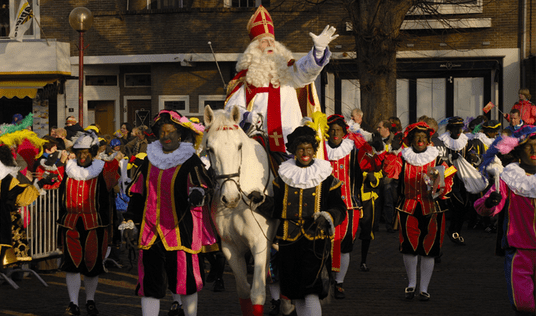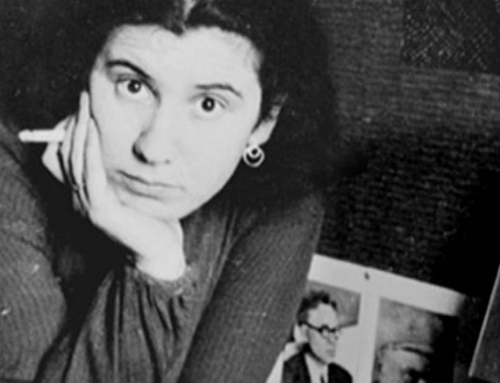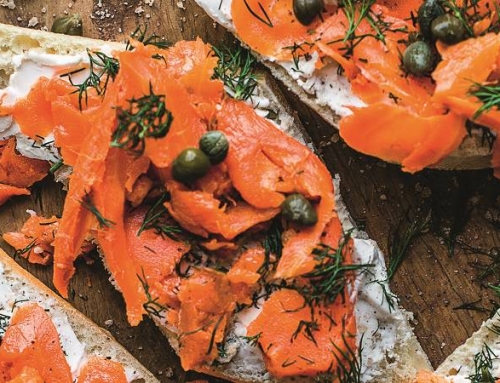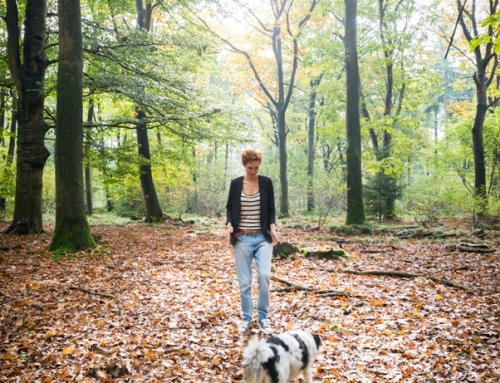The Problem with Being Right
Last week, I had an innerpreneur-relapse on social media. For some years now, my country is divided over a traditional holiday called Sinterklaas, a Santa Clause predecessor that delivers gifts to children that have been good. He’s assisted by a persona called zwarte Piet, ‘black Pete’, whose historical roots prove no mystery when you consider Holland’s pivotal role in the Trans-Atlantic slave trade from the 16th through 19th century.
So here’s a national holiday that is probably bigger than Christmas -at least in the cultural sense- that features a white dude with a beard in a robe and his slave. The only way I can make this picture less, well… embarrassing is by emphasizing that Sinterklaas has been a genuine collective Dutch blind spot. Nobody worried about black Pete twenty or even ten years ago. And I shamefully admit to be among those people. I loved the Sinterklaas-holiday as a child. There were songs, sweets, family, and most importantly, presents -and frankly I didn’t care who delivered them.
It’s hard to explain to a non-Dutch person just how deep an entire nation was dipped in a cultural can of ignorance.
So deep that it took outsiders to start asking questions about ’this whole black Pete thing’. My American friends were horrified when I told them about our ‘innocent’ holiday, documentaries were made and recently even the U.N. spoke out against black Pete. Part of the country collectively woke up and now face the annual flooding of Sinterklaas and black Pete in Dutch streets, malls and merchandise with increasing shame. Another part of the country were -and still are- enraged by the ‘attack’ on black Pete. They feel that an innocent children’s’ holiday is being ruined by political hypersensitivity. Enraged to the point that death threats flow out from the pro-black Pete camp to public figures who spoke out against it. Even our president is one of the people that doesn’t consider black Pete a problem and feels that the rest of the country -and world- should just get over their issues.

So here we are. Oldest story in the book. You’re either for or against. And of course, I’m no exception. And you can probably tell by now in with trench I lay.
I feel so right about black Pete being so wrong.
And so, war starts. War in my mind and then, projected out into the world. So last week, enflamed by a pro black Pete expression and empowered by my righteousness, I swirled a fiery post into social media air. Of course, trenches formed and shooting started. I’m sure nobody changed their opinion because of my post. No one’s world opened up. I didn’t feel good about it either. If anything, I soon realized that I had merely done what keeps any war going in this world: I had lashed out from that ancient secure feeling that I was right.
The problem with being right, though, is that somebody else has to be wrong.
That’s the only way it works. So every time I feel that I’m right, I make someone wrong. I become completely disconnected from what they have to say in the first place -after all, they’re wrong. The conversation has ended and the battle has begun.
Being right has nothing to do with compassion, Buddhist teacher Chögyam Trungpa famously said.
I thought about this last week. Of course, black Pete is only one of the many things in my personal life and the larger world that I get riled up about. Knowing what went on in the world was valued highly in the family that raised me and being opinionated was regarded an inevitable virtue that came along with that.
I still have trouble integrating the power of standing up for something with the insight that being right hardly ever is skillful. Or constructive.
Yet the individuals I admire the most were neither fundamentalists nor pushovers. There is a way to stand up for what you believe in without disconnecting from yourself and others that share a different opinion. There must be.
In fact, I regard the refusal to fundamentalize as a key feature of the innerpreneur.
One of the principles I take refuge in is to try to not accuse others of things that I’m guilty of myself. Which probably means a lifetime of non-judgement in my case. You see, I love being right. I ‘do’ being right so well.
I’m a hot-headed redhead with a temper. But what I love even more than being right is being free.
I prefer peace over war. I also forget and relapse. But I’ll try. I’ll try to stay connected to what’s happening around me, form opinions but maybe not believe in them to the point of becoming disconnected to anyone who feels differently. I’ll try to leave the door open. Just for my peace. These coming months will be fertile practice grounds for my innerpreneurship as my country prepares for battle -and Sinterklaas.






Oops, I am in the other “camp”. Can we still be friends? 😉
It’s good to be hotheaded and feel strongly about things. However….. (here it comes), I think that the whole racism thing is WAY over-interpreted. When I lived in the States, in freakin’ Alabama of all places, I then understood for the first time that there was such a big racism issue STILL between black and (ugh) white people. I grew up with our kids party Sinterklaas, I grew up in an innocent, mainly white village. I NEVER, NEVER EVER looked badly upon, or felt something about black people as a child. I never considered them to be different or had any prejudice. And I hope I still don’t. That’s my proof that Sinterklaas does not plant racism ideas into people’s minds. Kids actually RESPECT Black Pete. You know why? He is Sinterklaas most trusted PA, he is strong, he is agile. He is able to climb on rooftops and jump from roof to roof. He is the most athletic mythical icon I know (next to Spiderman). He brings you candy, if you have been a nice kid. If you haven’t been nice, he has some kind of whip to beat sense into you (somewhat kidding) A kid respects Black Pete. Seriously though, you probably only know what this whole issue is about, if you are black. And if you have been in situations all your life that have been discriminating towards you because of your colour. I can truly understand. And then I am probably being a naive (ugh) white person. But my proof is as mentioned before, I never ever knew of any disregard towards black people, when I grew up with the symbolism of Sinterklaas.
Only when I was in Alabama. I was called names by black people (“He whitey, he white B*…”) And there where white and black fraternity’s etc. I knew people, that threw parties and no black people where allowed. I refused to go to those parties. That opened my eyes to racism, current day racism. NOT Sinterklaas…
And while I am off on this rampage… I think there are WAY more disturbing country traditions to take care off. WAY more pressing matters in my eyes. WHEN IS THE DANISH TRADITION OF SLAYING WHALES IN THE MOST BRUTAL WAY FINALLY GIVEN THIS MUCH ATTENTION??? WHEN IS THE U.N. WILLING TO TAKE A STAND IN THAT? Oh right…they are animals. Any tradition regarding animals is apparently not to be touched. Let’s also not do anything about the mistreating of bulls in Spain. That’s a tradition. Let’s not touch that.
(are we still friends after me passionately expressing myself about this?) The fact that we can speak our minds about things we feel strongly about, is indeed… freedom.
Cheers to you Geertje!
Onze Zwarte Piet is onschuldig; is zeer beslist geen slavenfiguur.
De slaventijd was verschrikkelijk, maar heeft niets en dan ook niets met onze Zwarte Piet te maken.
Eigenlijk bega je door Zwarte Piet aan de slavernij te koppelen een grote tragische vergissing die veel mensen op het verkeerde been zet en allemaal treurige commotie teweeg brengt.
Please, please, please…
Nicoline and Riny, I appreciate that you shared your thoughts.
It’s safe to say that your points of view give me a lot of opportunity to practice peace in stead of war.
<3
I am on the other side too. What do we tell the kids, sorry it is racist if you love black pete and Sinterklaas? Can you imagine their faces, they do not understand.
Sinterklaas celebrates his birthday with us and his helpers, cool and fun and jumpy and giving. I really think this is a discussion between grown-ups and we totally forget the kids.
I have thee boys, they came home from school last year saying they had to sing their beloved songs differently, The teacher got tense if they sang black peet, how are they to understand? The kids refused to sing anything buy their joyous song about Sinterklaas and Zwarte Piet.
Is Santa going to get into trouble with animalrights next for slaving the raindeer? Not to speak of the gnomes he has working for him.
Yeah lets practice love and peace and enjoy the celebrations which unite families and friends.
It’s interesting how you and some other commenters keep talking about being on the ‘other side/camp’… I wrote this post in the hopes over overcoming this problem of polarization -the beginning of all war. Not to dig deeper into the trenches.
It’s very easy to say something that has a racist root is ‘okay’ because it ‘feels ok’, and because ‘I and my kids’ don’t have bad thoughts or actions because of it. This is what you might called “selfie-ethics” – when you look in the mirror, you don’t see a bad person.
But really interesting ethics is not about what you /think/ or /feel/ you do, it’s about what the /actual or potential results / of what you do are. If you buy a phone or sofa from a cheap manufacturer, it’s likely toxic chemicals will be released somewhere, that will harm some child or animal or environment. Think it through: when you bought the sofa, was your plan to harm some kid or animal or bit of nature? Of course not, that would be crazy.
And so it is with Black Pete and all such issues. You can be totally ethical – you could buy that phone / sofa for refugees, you could have the most loving family christmases – but still, the ethical problem is still there: Black Pete either does or might have negative effects on someone. So, that’s the problem Geertje is reaching towards.
If you doubt the negative effect, just ponder what a small black child would think look at Santa and Black Pete: “why is Santa never black? why is Black Pete’s story, when you look it up, so disgusting?”. Whatever they might think, it won’t be good.
Ethics is not about changing the /obviously/ bad things we do – otherwise, it would it be too easy, and society would be perfect already. It’s about changing the hidden and complex things we did, which have bad consequences.
As for being right, there’s nothing wrong with that; the question is, how do you engage on that basis without excluding people from the goodness of it? Buddha was quite good at that – just used lots of questions and infinite patience. You can’t give up what you believe because you are worried it makes you unpopular. Sometimes the nicest people – loveliest – really are just wrong.
Thank you John. I feel you make a very interesting point when you make a distinction between how you feel and what the consequences are of that. So much food for thought.
Hi Geertje … Your commentary on the dilemma of Black Pete is interesting, yet I am left wondering if you arrive at a resolution for yourself-to do or not to do–which is the path to peace?
As for Peace –” only when the power of love overcomes the love of power we will know peace.” Jimmy Hendrix said that and I think It may apply to Black Pete. He is a collective memory– one that skillfully uses the power of childhood nostalgia, and manipulates by using sentimental feelings of nationalism. But what his character achieves is to reinforce with each new generation a rather banal power hierarchy.
In any event, I thought you might find this article on what to do about the problem of white fragility.in the face of accusations of racism, of use.
https://www.alternet.org/news-amp-politics/11-ways-white-america-avoids-taking-responsibility-its-racism
warmly, your silent roomie from France … J.
Jody! First of all how wonderful to hear from you! I hope you are well. Secondly, thank you for your contribution to this discussion. I really appreciated the article you recommended. I think it really touches on what is happening in Holland right now -it very aptly explains the outrage that is felt by -truthfully, the majority of Dutch people. I suspect that the acknowledgment and consequences of white privilege is somehow very new here. We are not used to discuss race in a political context like is more common in the US and Canada.
As far as my resolution on this…I am struggling to be honest. Like I mention in the post, this issue really gets me riled up. And I’m very aware of how that reaction does not help anyone. So for now I feel…and feel…and feel…I try to listen and hear other people’s perspective without fundamentalizing or closing down AND disagree in a peaceful way. It feels like a koan. Something to sit with patiently and not try to resolve by pushing. Does that make sense?
Thank you again and be well!
Since I was a teenager, I have had very strong feelings on all forms of injustice: racism, sexisme, bullying, abuse …….it consumed me. For a long time I would have very heated discussions with my peers, feeling frustrated when I couldn’t somehow get my point across, understood or change their opinion.
Later, as a student of social psychology, it dawned on me that there are many factors that play a role in complex social issues (injustices) such as consciousness, knowledge, empathy, awareness and intention.
I recall a fellow student studying the effects of sexism in language, something that I had never been aware of…..until it became more clear to me. From then on I could no longer ignore it and pretend it didn’t exist.
I think it is the same with the “zwarte piet” discussion in the Netherlands. Some people are just afraid, afraid that their traditions will be taken away from them. Traditions, as other rituals, can bring people together, can be joyfull, can unite, but also give people a sense of security.
I believe, for some, the discussion about “black Pete” has given rise to fear, fear of change…and I understand this. One of your readers makes this quite clear when she is talking about “our Sinterklaas and Zwarte Piet”. What is she afraid of losing?
The tradition of fun, presents and celebration does not have to disappear, but why can’t it change? Especially, once we know and understand the history linked to “black pete”.
Ofcourse, young children don’t see it the way adults do. So would they really care if Black Pete changed….would it change the fun they have? I don’t think so, not unless the parents do!
The problem with this discussion in the Netherlands is the way we are discussing this: it is exactly the polarisation in “right ” or wrong” that is causing the big upheaval.
Change, awareness, takes time but also, in my view, a less radical approach. This leads to aggression and in some cases, even more polarization.
Forcing change, in my opinion will not work, on the contrary it may even increase agression.
In response to what someone posted above: a teacher should bring change in a positive way, and say “we’re going to try a new Sinterklaas song today” not just forbid.
However, a mother could say “of course you can love the sinterklaas tradition” and then, according to the kids’ age, explain gently why change can be good, especially if it offends a large group of people.
So, if we just all try to understand and become more knowledgeable, feel how it is offensive for others, not fuel the fear, but be the change ourselves….and particularly, be patient….this whole issue could, in time, be resolved.
But, ……….once we are aware, we can no longer ignore, and that, in my view, is the true difference between “right” or “wrong”.
wow, Gemma, thank you so much for your elaborate and wise offering. It certainly was helpful to me personally. I also love how you offer practical suggestions for dealing with the logistics of changing the Sinterklaas tradition in a gentle way. A bow to you.
Zwarte Piet wie kent hem niet. Eigenlijk baalde ik al toen je de discussie opende dat ik reageerde. Het lokaas was te verleidelijk. Een standpunt innemen en zeker weten dat je gelijk hebt en de ander niet, polariseert gelijk de discussie ook al voel je in heel je systeem dat het voor jou zo is. Ik ontdek steeds meer dat hoe meer ik van mezelf weet hoe meer ik de ander begrijp en regelmatig begrip voor heb of in ieder geval begrijp vanuit welke optiek gedacht wordt. Irritatie zegt natuurlijk heel veel over onszelf. Natuurlijk vind ik het zelf ook moeilijk als ik een standpunt over iets heb wat me na aan het hart ligt dat ik de wereld daarvan wil overtuigen. Maar het besef dat ik mezelf waardevol vind maar ook de waarde van de ander zie en wil zien, maakt dat het gemakkelijker is om dat los te zien van gedrag of een afwijkende mening. Het vinden dat je gelijk hebt staat verbinding maken vaak in de weg. Hartelijke groet Geertje
Dankjewel Willem. Bijzonder dat we allebei spijt hadden. Ik ben blij dat we nu ook allebei de kans hebben om het “beter” te doen -en in verbinding te blijven. 😀
I love how you have a mix of people with loads of braincells and some braincells in your public. LOL ‘And It’s safe to say that your points of view give me a lot of opportunity to practice peace in stead of war’ : classic! looool
Hi Geertje!
Nicoline recently let me read this article and since my opinion on this is a bit deviant than others, let me share it.
First of all, I’m neither for nor against, or actually both for and against. One of the most beautiful things about culture is that it can evolve. It’s not a static thing. After all, we don’t walk on wooden shoes anymore though we still call it our Dutch culture.
Culture can grow and change, like language. For instance, whenever the majority of the people in a nation frequently uses bad grammar, it will at some point be embraced in the official language, e.g.: “overnieuw”. Thus, my opinion is that when a majority of the Dutch nation thinks it’s time to slightly change the Sinterklaas tradition and bring in some nuances, like Color Petes, it’s cultural growing. Of course, the international community, other countries, cannot intervene here and their opinion is of no value in this matter since it is not their culture.
Now, there are of course some clarifications needed. Like Nicoline said, the Danish tradition of slaying whales, or the Spanish tradition of bullfighting, differs from Sinterklaas in a few aspects. First of all, animals are for all to enjoy, not just 1 country. The whales that the Danes slay, can never swim to others countries for other people to enjoy. So, you have traditions that actually affect outsiders and traditions that don’t affect outsiders. Furthermore, there is the interpretation of a slave. You may say Black Pete is black, a helper and the Dutch have a tradition of slavery, so 1 + 1 + 1 = 3. But lets look at the facts. And pardon the pun, talking about facts and Sinterklaas 🙂
Sinterklaas doesn’t treat Black Pete as if he’s a slave. He doesn’t even call him a slave but a “knecht”, which is actually a profession. According to the story, if a child has been bad, it was Black Pete holding the whip (roe). Pretty ironic, calling him the slave! The most interesting fact is that even though the story of Sinterklaas is almost 600 years old, Black Pete was only introduced around the year 1850, when slave trade was already abolished for 50 years in The Netherlands. Slavery did still exist in the Dutch colonies, but was abolished completely at the same time Black Pete made his first appearance. Maybe, but we will never know, Black Pete was deliberately introduced into the tradition because of the abolition of slavery: black people are now free and part of our society and culture. Who knows?
Like you said, 10 years ago no one was arguing about this. Someone mentions “racism” and we have a debate, while there is likely no racism involved in the story of Sinterklaas. Still I stick to my opinion that as soon as the majority thinks it’s time to switch to Color Petes, or Sinterklaas riding a black horse, or a space rocket from Mars instead of a steamboat from Spain, I’m for that change. Until then, I’m against.
My two cents 🙂